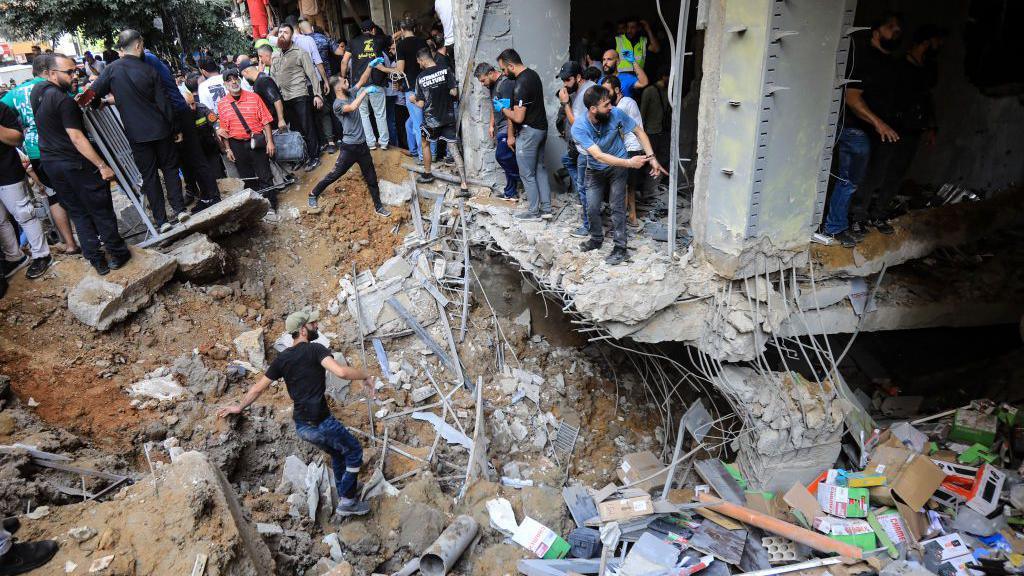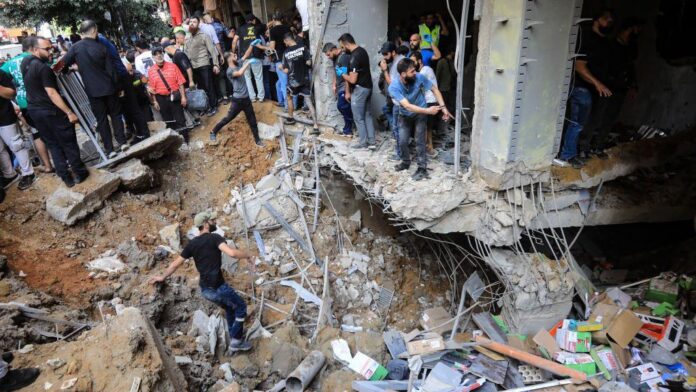
An Israeli airstrike in Beirut on Tuesday has claimed the life of Ibrahim Qubaisi, the head of Hezbollah’s missile division. This incident marks a significant escalation in the ongoing conflict between Israel and the Iran-backed militant group, which has seen increased cross-border clashes and rocket fire.
Key Developments:
- Ibrahim Qubaisi’s Death: The Israeli Defense Forces (IDF) confirmed the killing of Qubaisi, who had been a pivotal figure in Hezbollah’s missile capabilities for decades. He was targeted in an airstrike that took place in the Dahiyeh suburb of Beirut.
- Rocket Barrage: This airstrike came after Hezbollah launched approximately 300 rockets towards northern Israeli cities, including Haifa, Safed, and Nazareth, triggering air raid sirens across the Galilee region.
- Additional Casualties: Alongside Qubaisi, the IDF reported that at least two other high-ranking Hezbollah commanders were also killed in the strike, further impacting the group’s missile operations.
- Hezbollah’s Response: Hezbollah confirmed Qubaisi’s death, labeling him a martyr “on the road to Jerusalem,” a term they reserve for fighters killed by Israeli forces.
- Qubaisi’s Background: A veteran member of Hezbollah since the 1980s, Qubaisi held various command positions over the years, including oversight of the precision-guided missile program. He played a crucial role in numerous military strategies against Israel, including the high-profile 2000 Mount Dov operation.
- Civilian Impact: The Lebanese Health Ministry reported that the airstrike also resulted in the deaths of six civilians and injuries to at least 15 others, underscoring the humanitarian toll of the escalating violence.
- Regional Escalation: The exchange of missiles between Israel and Hezbollah comes amid a broader surge in violence since the Gaza war erupted in October 2023. There are mounting fears that this conflict could expand into a wider war involving various Iranian-backed groups across the Middle East.
- International Concerns: United Nations Secretary-General Antonio Guterres has warned that Lebanon is on the brink of disaster. In a call for de-escalation, U.S. President Joe Biden urged both Israel and Hezbollah to avoid further conflict.
- Israeli Leadership’s Stance: Israeli Prime Minister Benjamin Netanyahu responded defiantly, promising continued strikes against Hezbollah’s military targets in Lebanon. He stated, “We will continue to hit Hezbollah,” emphasizing that any residence harboring missiles would face destruction.
- Implications for the Region: The current situation raises critical concerns about the stability of Lebanon and the broader Middle East, as ongoing military actions threaten to draw in additional regional players and exacerbate an already volatile situation.
As the situation continues to develop, the international community is closely monitoring the escalating conflict and its potential ramifications for peace in the region.
Sources By Agencies



